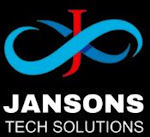The Funding Conundrum: Challenges Faced by VR Start-ups: Despite early excitement and significant technological advancements, VR start-ups have encountered difficulties in securing long-term funding. High production costs, consumer adoption concerns, and the lack of a dominant market player have contributed to investor hesitation, making it challenging for VR start-ups to sustain their operations and realize their full potential.
Apple's Entry: A Potential Game-Changer for the VR Market: With its track record of disrupting industries, Apple's rumored entry into the VR market has generated significant buzz. The tech giant's expertise in hardware design, software integration, and user experience could potentially address some of the challenges that have plagued VR adoption. The anticipation of Apple's involvement has rekindled hopes among VR start-ups, attracting investor attention and potentially reshaping the future of the industry.
Apple's Influence: From iPod to iPhone, a History of Disruptive Innovation: Apple has a proven history of transforming markets and creating new opportunities. The company's past successes, from the iPod's impact on the music industry to the iPhone's revolution in mobile communication, highlight Apple's ability to redefine user experiences and drive widespread adoption. VR start-ups are banking on Apple's expertise to deliver a similar disruption in the VR landscape.
Mainstream Appeal: Apple's Potential to Drive Consumer Adoption: One of the key challenges for VR start-ups has been achieving mainstream appeal beyond niche markets. Apple's strong brand recognition and loyal customer base could play a pivotal role in introducing VR to the masses. By leveraging their extensive ecosystem and integrating VR seamlessly into their existing products and services, Apple has the potential to attract a broader audience and ignite widespread interest in VR technology.
Increased Investor Confidence: The Apple Effect on VR Funding: The mere prospect of Apple's involvement in the VR market has already sparked renewed investor confidence. The company's history of successful product launches and its ability to create new markets could entice venture capitalists and angel investors to reevaluate their stance on VR start-ups. Apple's endorsement could serve as a catalyst for increased funding and inject new life into the VR industry.
Collaborative Opportunities: Partnerships and Acquisitions in the VR Ecosystem: Apple's entry into the VR space may also open doors for collaboration between the tech giant and existing VR start-ups. Strategic partnerships and potential acquisitions could provide a lifeline to struggling companies, offering them access to Apple's vast resources, technology, and distribution channels. Such collaborations have the potential to foster innovation and accelerate the growth of the VR industry as a whole.
The Future of VR: Apple's Impact on Technology and Content Development: Apple's entry into VR is not only expected to bring hardware advancements but also drive content development and user experiences. With its emphasis on quality and user-friendly interfaces, Apple could set new standards for VR content, pushing the boundaries of what is possible and encouraging other players in the industry to elevate their offerings.
Overcoming Challenges: Building Consumer Trust and Addressing Concerns: While Apple's involvement brings renewed hope, VR start-ups must still address various challenges to gain consumer trust and ensure widespread adoption. Concerns such as motion sickness, content quality, and affordability must be carefully addressed to convince potential users of the value and accessibility of VR experiences.
Conclusion: The VR industry is eagerly awaiting Apple's potential entry into the market, viewing it as a much-needed catalyst to revive funding and drive widespread adoption. With its proven track record of disruptive innovation and ability to capture consumer interest, Apple's involvement could reshape the future of VR technology. As VR start-ups pin their hopes on Apple, the industry eagerly anticipates a new era of growth, innovation, and investment in virtual reality.
The Future of VR: Apple's Impact on Technology and Content Development: Apple's entry into VR is not only expected to bring hardware advancements but also drive content development and user experiences. With its emphasis on quality and user-friendly interfaces, Apple could set new standards for VR content, pushing the boundaries of what is possible and encouraging other players in the industry to elevate their offerings.
Overcoming Challenges: Building Consumer Trust and Addressing Concerns: While Apple's involvement brings renewed hope, VR start-ups must still address various challenges to gain consumer trust and ensure widespread adoption. Concerns such as motion sickness, content quality, and affordability must be carefully addressed to convince potential users of the value and accessibility of VR experiences.
Conclusion: The VR industry is eagerly awaiting Apple's potential entry into the market, viewing it as a much-needed catalyst to revive funding and drive widespread adoption. With its proven track record of disruptive innovation and ability to capture consumer interest, Apple's involvement could reshape the future of VR technology. As VR start-ups pin their hopes on Apple, the industry eagerly anticipates a new era of growth, innovation, and investment in virtual reality.




Your comments are greatly valued, and we appreciate your participation.